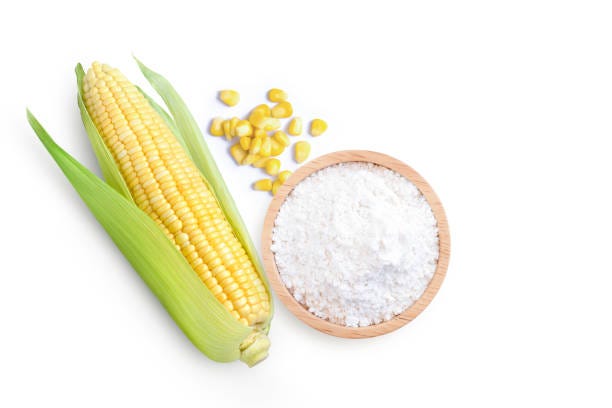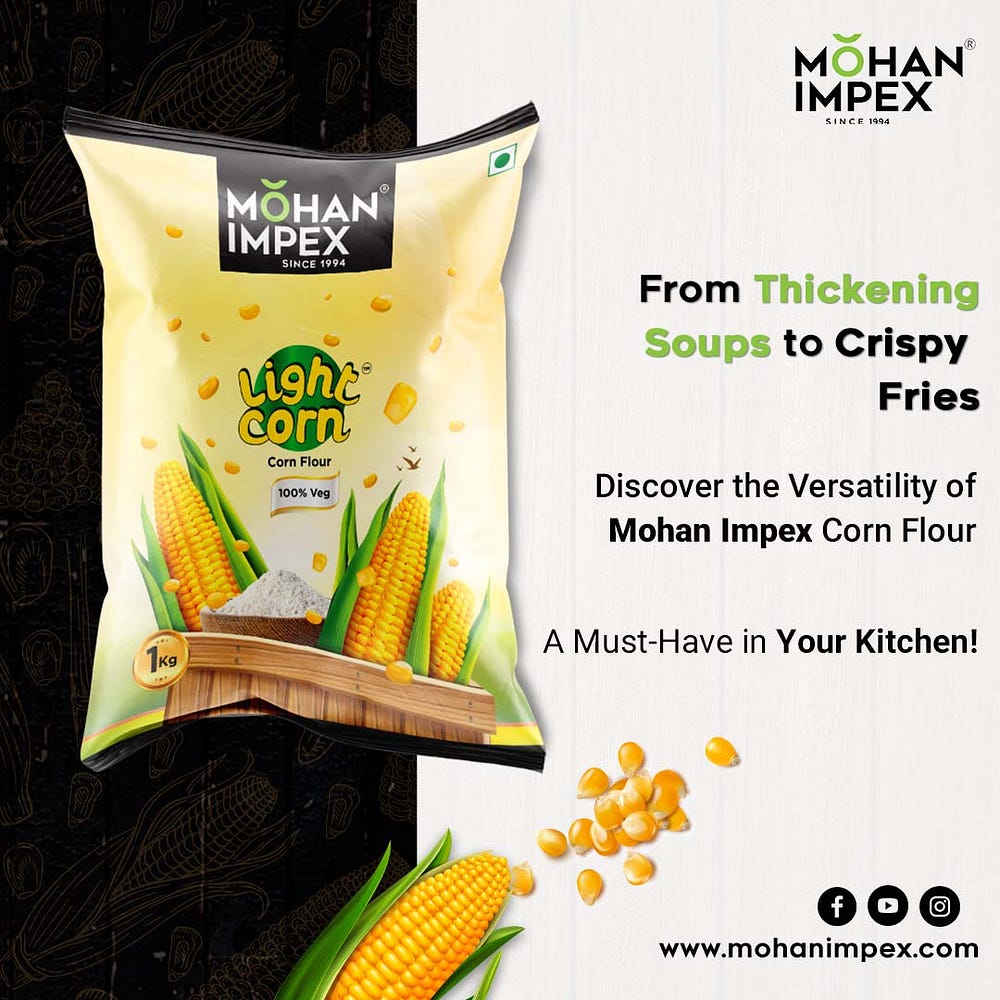The Nutritional Benefits of Corn Flour: A Closer Look
First Off
As nutritional options and culinary creations change constantly, Corn Flour has become more and more well-known as a flexible and nourishing component. This article explores the nutritional value of Corn Flour, including information on its ingredients, health benefits, and possible use for people looking to follow a well-balanced diet.
Recognising Corn Flour
A fine, powdery product made from maize, Corn Flour is a common ingredient in many international cuisines. It is a great option for people who follow a gluten-free diet or have sensitivity to gluten because it is naturally gluten-free. Because of this, it is a desirable substitute for regular wheat flour in a wide range of culinary applications.

The Nutrition Facts of Corn Flour
With a variety of vital vitamins and minerals, Corn Flour has an impressive nutritional profile that helps explain why it’s considered a healthy option. Here’s a rundown of its essential components:
High in Fibre
An essential ingredient that facilitates digestion and supports gut health in general is fibre. A good source of dietary fibre that can aid with blood sugar regulation, weight management, and constipation prevention is Corn Flour.
2. Vitamins in Abundance
One may find a wealth of vital vitamins in Corn Flour, such as:
A. Vitamin
It is well known that vitamin A helps to keep skin and eyes healthy. The high vitamin A concentration of Corn Flour promotes healthy skin and eyes.
B. Berries
Numerous B vitamins, including B1 (thiamine), B3 (niacin), and B5 (pantothenic acid), are found in Corn Flour. These vitamins are essential for nerve function, energy metabolism, and maintaining good skin and hair.
c. Calcium
Stronger immunity and improved resistance to infections are two benefits of vitamin C, a powerful antioxidant. The vitamin C concentration of Corn Flour helps to provide this advantage.
3. Mineral Resources
Essential minerals found in abundance in Corn Flour include:
a. Magnesium
Magnesium is essential for blood pressure regulation, bone health, and muscular function. The magnesium in Corn Flour helps to sustain these essential processes.
b. The phosphate
Because it is essential for healthy bones and teeth, phosphorus is a crucial ingredient in Corn Flour.
c. Ammonium
Potassium regulates blood pressure and aids in the maintenance of healthy heart and muscle function. The potassium in Corn Flour facilitates these activities.
4. Superoxide
Numerous antioxidants included in Corn Flour fight free radicals, shielding the body from oxidative stress and perhaps lowering the incidence of chronic illnesses.

Advantages of Corn Flour for Health
After discussing the nutritional aspects of Corn Flour, let’s examine the health advantages it provides:
1. Management of Weight
Corn flour can help people feel fuller for longer periods of time because of its high fibre content, which can lower overall calorie consumption and support weight management.
2. Better Digestive Health
The dietary fibre present in Corn Flour facilitates regular bowel movements and a healthy digestive system by averting constipation.
3. Improved Eyesight
Corn flour’s high vitamin A content promotes healthy vision and may lower the risk of eye-related problems.
4. Energising
The B vitamins in Corn Flour aid in better energy metabolism, which reduces exhaustion and boosts vigour all around.
5. A more robust immune system
The immune system is strengthened by the vitamin C in Corn Flour, which helps the body fight off infections.
6. Bone Wellness
Corn flour helps maintain healthy bones and teeth because of its high phosphorus and magnesium levels.
Utilising Culinary Skills
Corn flour is a great component in many different cuisines due to its adaptability in the kitchen. Here are some suggestions for incorporating it into your dishes:
1. Confectionery
For baking without gluten, corn flour is a great option. It may be used to make tasty cakes, muffins, and bread.
2. Agent Thickening
It gives your foods a distinct texture and flavour and is frequently used as a thickening ingredient in soups, stews, and gravies.
3. Using bread
For fried meals like fish or poultry, corn flour creates a deliciously crunchy coating.
4. Non-Gluten Pancakes
Make your favourite pancake recipe with corn flour instead of regular wheat flour for fluffy, tasty pancakes.
5. Tortillas and Tamales
For the making of tortillas and tamales, two essential components of Latin American cooking, corn flour is a must.
In summary
With its great nutritional advantages and numerous uses, Corn Flour is a useful addition to any kitchen. This commonplace item has a plethora of uses, whether you want to improve your nutrition, encourage greater health, or just up your cooking game. Accept the benefits of Corn Flour and discover the new culinary opportunities it presents. Visit contgpt.com right away to acquire the best corn flour and learn more enlightening cooking concepts.
Comments
Post a Comment